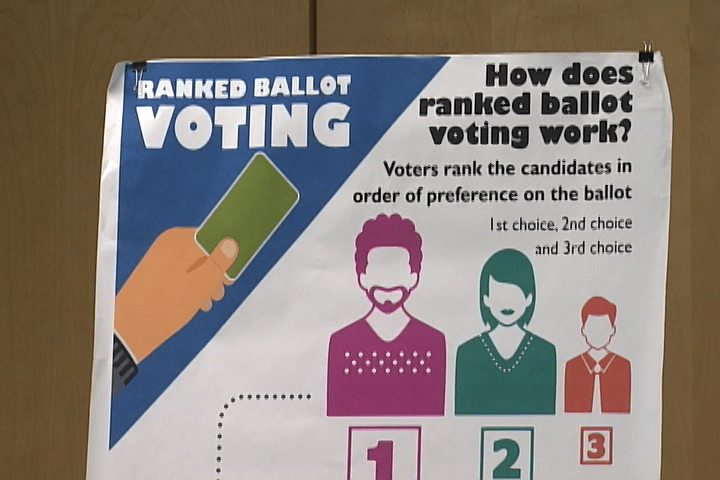The deputy mayor of London, Ont., says since the province is forcing the municipality to scrap ranked ballot elections and switch back to first-past-the-post, it should also cover the costs the city spent when it switched to ranked ballots in the first place.

Jesse Helmer also suggests that it was a misstep for the province to go after ranked balloting, arguing that it’s only ignited more interest in it.
On Monday, Bill 218 passed third reading, which is the final stage of consideration for a bill before it receives royal assent and comes into effect.
The controversial bill largely focused on measures to provide liability protection from COVID-19 exposure to workers, businesses and charities, but also revokes changes introduced in 2016 that allowed municipalities to hold ranked ballot elections.
While a handful of Ontario municipalities were looking into making the switch, including Kingston and Cambridge, London was the only municipality in the province — and the only government in Canada — to move to ranked ballots.
“(Bill 218) is now forcing us to incur new costs at a time when, frankly, we don’t have a lot of extra funds floating around,” Helmer told Global News.
“We’ve got a lot of important things we’ve got to focus on and being forced to switch back and explain what’s going on and print new ballots up and print up new ballot information and just educate people about why we’re switching back, this is all stuff that we don’t really have time for or want to do.”

Get breaking National news
Helmer believes the city should try to pursue not just the roughly $50,000 cost associated with switching back, but also “some of the hundreds of thousands” spent on consultation and education when the city made the switch for the 2018 municipal election.
“Some of the one-time costs we incurred when we did the consultation and all the education about switching, those are pretty substantial one-time costs. I think we should go to the province and ask them to cover that. They’re throwing it away. It would have helped us over multiple election cycles,” he said.
“If they’re going to force us to switch, as they have done, I think it’s only fair that they cover the costs.”
The province has argued that municipalities should not “experiment” with changes to municipal votes during the pandemic. The government says this measure will keep the electoral process consistent across municipal, provincial and federal elections.
On Oct. 21, Premier Doug Ford described the ranked ballot system as “confusing” even though he was elected leader of the Progressive Conservative Party using ranked balloting.

Helmer has also suggested that if the province’s goal was to minimize the number of municipalities adopting ranked ballots, the best strategy would have been to do nothing.
“There’s 444 municipalities in Ontario and only a handful were looking at switching to rank ballots,” he said.
“Now that there’s all this attention on it, I think a lot of people are annoyed that the province would come in and force people to switch back here in London, ignore the results of referenda in Kingston and Cambridge.”
Meanwhile, Scarborough-Guildwood Liberal MPP Mitzie Hunter — who introduced the bill in 2014 that was passed in 2016 allowing ranked ballots in the first place — tabled a private member’s bill on Tuesday.
Hunter says Bill 232 would allow municipalities “the independence and respect that they are due” to decide if they want to hold ranked ballot elections.
— with a file from The Canadian Press and Global News’ Kevin Nielsen.











Comments